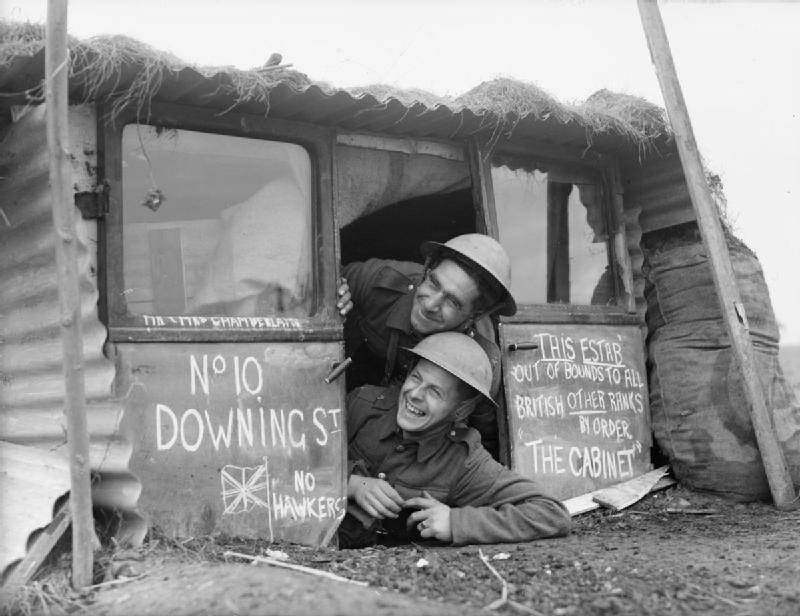 Who would've thought that World War II, the deadliest war in history, would be considered phony at the start? This eight-month period of time between the German invasion of Poland in 1939 and Germany's invasion in France in 1940 was named "the phony war" by the press.
Who would've thought that World War II, the deadliest war in history, would be considered phony at the start? This eight-month period of time between the German invasion of Poland in 1939 and Germany's invasion in France in 1940 was named "the phony war" by the press.The term was first used by US senator William Borah, who exclaimed, "there is something phony about this war," due to the inactivity at the start of the war.
Although the war was declared on each side and there was conflict at sea where German U-boat submarines struck at and sunk 100 merchant shipping vessels headed to Great Britain, no land operations were undertaken by the Germans or the Allies on the Western front after the invasion in Poland.

During this period, soldiers became quite puzzled at the inactivity of the war and the public was very confused, as most would think that the start of the war would be chaotic. Many children who were evacuated at the beginning of the war went back to live with their families.
Although the public believed that all was calm, Germany used the time of inactivity to gain an advantage in the war. Germany convinced Britain to keep peace and remain hesitant to attack so that it could make the first move.
The so-called phony war quickly lost its name once Germany executed its strategic plan of simultaneously invading and attacking the Netherlands, Luxembourg, and Belgium. Europe would not be quiet again until September 1945, at the end of the war.
https://www.britannica.com/event/Phony-War
https://www.iwm.org.uk/history/britains-phoney-start-to-the-second-world-war
https://www.warhistoryonline.com/instant-articles/the-phony-war.html
https://allthatsinteresting.com/phoney-war
https://www.historylearningsite.co.uk/world-war-two/world-war-two-in-western-europe/the-phoney-war/
https://www.youtube.com/watch?v=U6dfil0-glA
https://www.history.com/topics/world-war-ii/dunkirk
Your blog post is really well written, and I appreciate how you touched on multiple different aspects of the "Phony War." I was wondering how much Germany knew that America was preparing, and if they were waiting for the US Military to put it's guard down a little bit before striking? Did this possibly help lead Germany to invade so many countries, because they weren't sure that it would happen?
ReplyDeletehttps://www.nytimes.com/2000/10/15/books/l-the-phony-war-505331.html
I found this post interesting considering how one of the world's largest conflicts first started as a "phony". Part of the reason for this was the approach that many of the allied powers took regarding Germany's actions in the war. In response to the invasion of Poland, both Britain and France engaged in defensive strategies that created the appearance of little fighting. In France, naval blockades were created to try and starve Germany. Britain, on the other hand, focused on creating safer air raid conditions for the British people rather than taking offensive actions. In fact, Britain even led an anti-war campaign in Germany by dropping anti-war pamphlets in Germany cities. This was known as the Confetti War and had few results. Overall, the actions of the major Allied Powers were extremely defensive and did little to promote fighting, causing for the feeling of "phoniness."
ReplyDeletehttps://www.iwm.org.uk/history/britains-phoney-start-to-the-second-world-war
https://www.warhistoryonline.com/instant-articles/the-phony-war.html